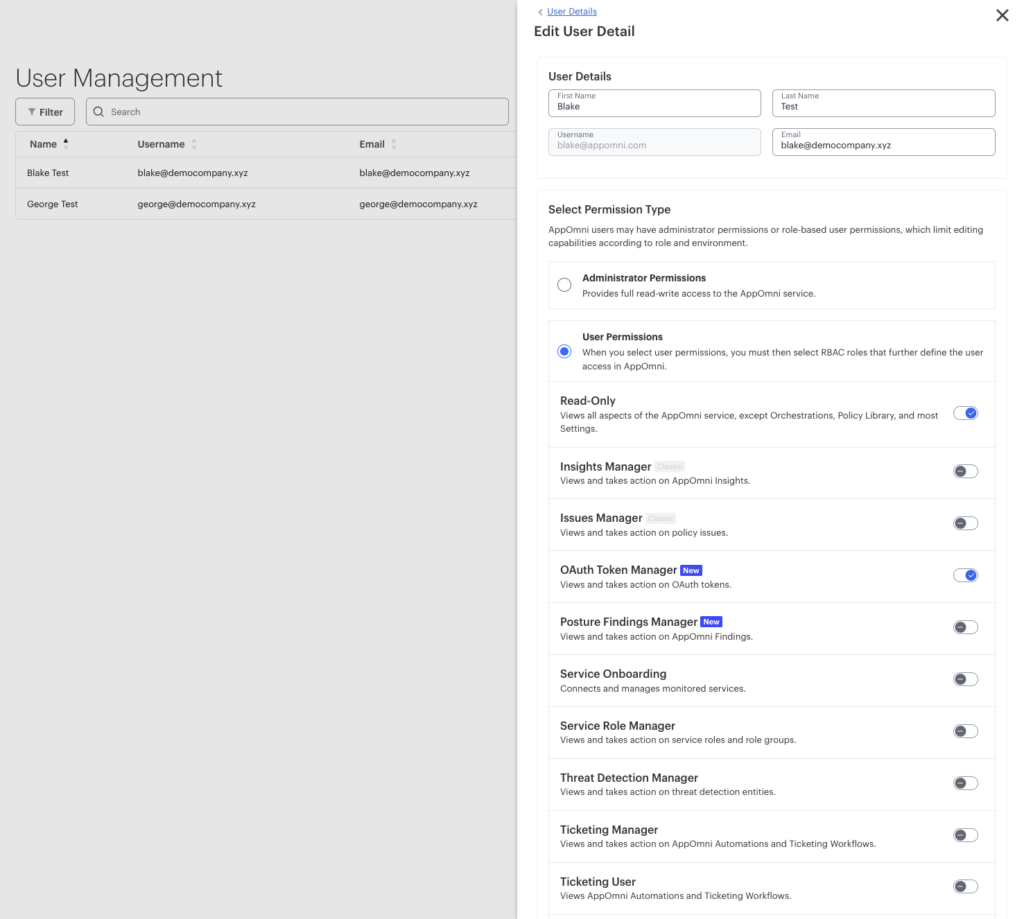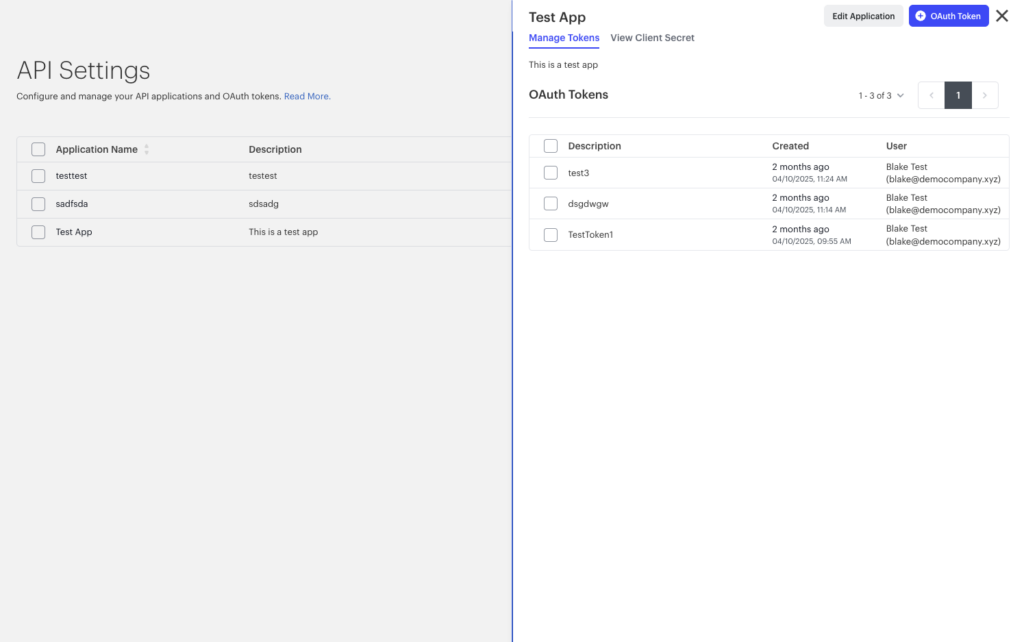API security is often an afterthought, until it creates real friction. According to The 2025 State of SaaS Security Report, 75% of organizations experienced a SaaS security incident in the past year, a 33% increase over the year prior. Many stemmed from excessive user access and misconfigured applications: 41% of security teams flagged user permission issues, while 29% reported incidents due to misconfigurations. The takeaway? Excessive API permissions are a hidden liability, and least privilege access is now a necessity.
That’s why AppOmni introduced a new role-based access control (RBAC) feature called OAuth Token Manager, which gives non-admin users secure, scoped access to AppOmni’s public API. It does this without compromising administrative boundaries. This feature solves a long-standing pain point for security-conscious teams while making API access faster, easier, and safer than ever before.
The hidden cost of API access for non-admins
If you’ve ever had to grant temporary admin access just so a developer could grab a token, you’re not alone. Previously, when users needed to access AppOmni’s public API, an admin had two options:
- Deny access altogether, creating productivity bottlenecks
- Temporarily grant admin privileges, violating least privilege principles and triggering audit concerns
This often meant giving users “the keys to the kingdom” just to let them complete a simple task like generating an OAuth token. These temporary workarounds undermined security protocols and made admin activity harder to justify under scrutiny.
OAuth Token Manager eliminates that moment of compromise.
Secure API access starts with the right role

The new OAuth Token Manager role transforms how teams manage API access. Instead of requiring admins to grant full privileges, they can now assign a purpose-built RBAC role that allows users to:
- Create and manage their own OAuth applications
- Generate their own access and refresh tokens
- View only the tokens and apps they personally created
This secure isolation ensures users can only interact with what they own. It’s OAuth token management with authorship-aware permissions, all tightly scoped to user-specific activity.
Admins or users with the User Manager role can assign OAuth Token Manager by navigating to the User Management section of the AppOmni Console and editing a user’s permissions. Users assigned the role can access their new capabilities and self-serve. They can create their own apps and generate tokens.
OAuth Token Manager users can’t view or manage tokens or applications created by others, maintaining strict visibility controls and reinforcing the principle of least privilege.
OAuth Token Manager: Smart access that doesn’t sacrifice control

OAuth Token Manager offers real, measurable benefits for both admins and users:
- No more awkward workarounds: Eliminate risky admin workarounds with secure, purpose-built access.
- Audit-friendly: No more explanations to auditors about why someone had access “just for five minutes.”
- Frictionless workflows: Developers and data teams can get the access they need, when they need it.
- Built-in security best practices: Enforce RBAC, limit visibility to user-owned assets, and follow a secure-by-design approach.
For example, users needing to download data into a BI tool like Tableau no longer have to escalate for admin access just to get a token. That’s not just safer, it’s smarter.
With OAuth Token Manager, AppOmni is strengthening its commitment to secure, scalable, and user-friendly access control. AppOmni makes it easier to empower teams while keeping environments secure and auditors happy.
Want to see OAuth Token Manager in action? Request a demo and discover how it empowers your teams without compromising on least privilege.